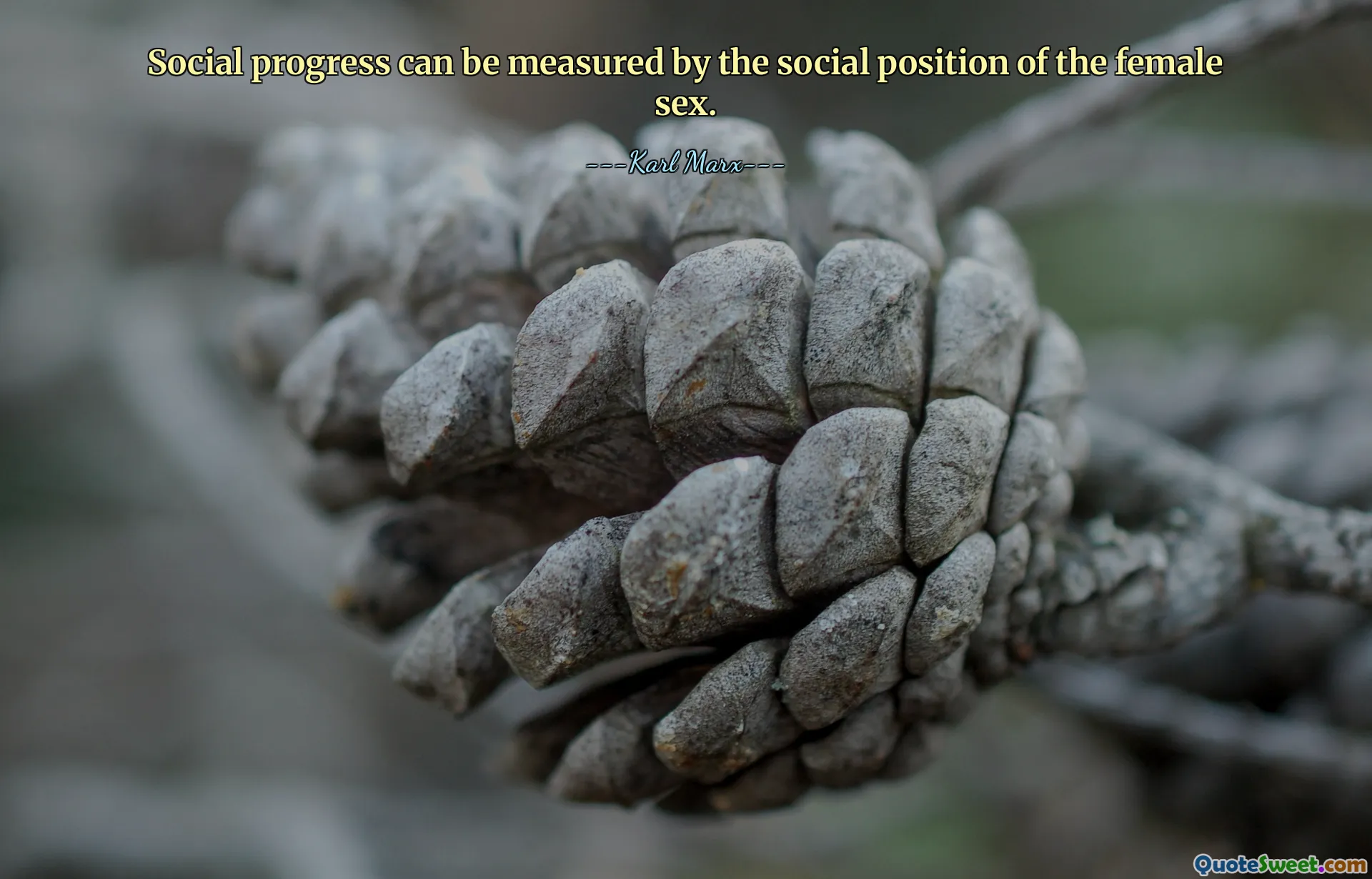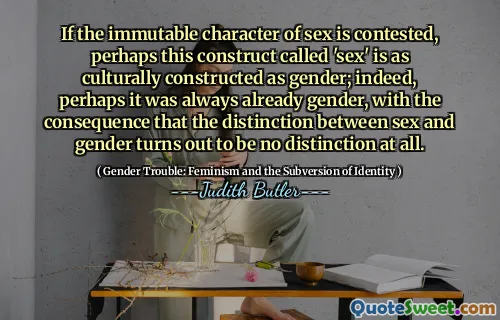
Social progress can be measured by the social position of the female sex.
This insightful quote underscores the critical role that gender equality plays in the overall advancement of society. When evaluating social progress, traditional metrics such as economic growth, technological development, or infrastructural expansion are often emphasized. However, the true measure of a society’s advancement lies in how it treats its most marginalized groups, particularly women. Historically, women have faced systemic barriers that have kept them from attaining equal rights, opportunities, and recognition. The social position of women reflects levels of societal fairness, inclusiveness, and respect for human rights. When women are empowered—through education, legal rights, employment opportunities, and political representation—the entire community benefits. This progression is often linked to better health outcomes, increased economic productivity, and more equitable governance. The quote suggests that examining the status of women can serve as a litmus test for societal development; if women are marginalized or oppressed, it indicates an underdeveloped society. Conversely, societies that have advanced in gender equality tend to exhibit broader social stability, prosperity, and innovation. The issue extends beyond mere fairness—it is about recognizing the intrinsic value and potential of half of humanity. Achieving gender equality requires dismantling cultural biases, enacting fair policies, and fostering environments where women can thrive. Ultimately, this quote challenges us to rethink our priorities and recognizes that true progress can only be achieved when we uplift every member of society, equally and justly.








